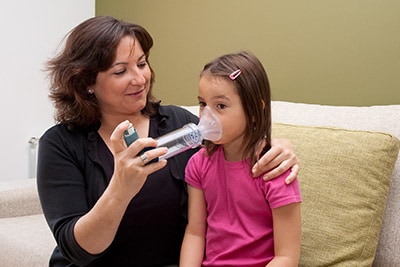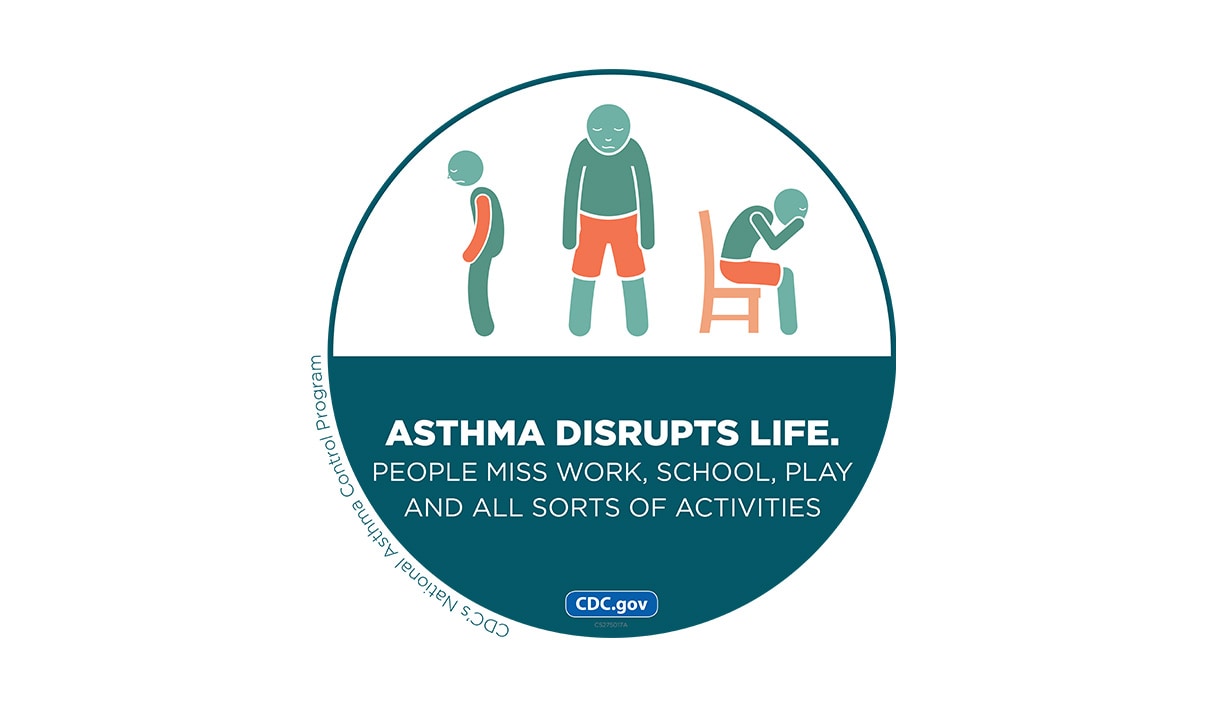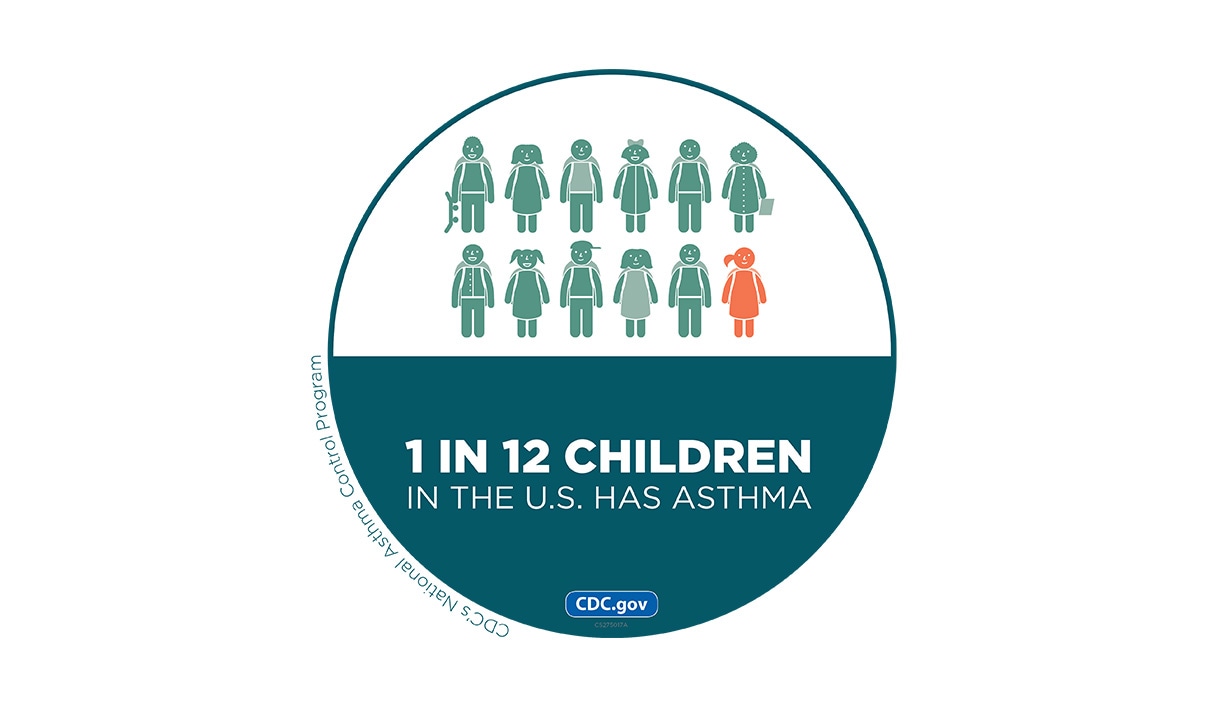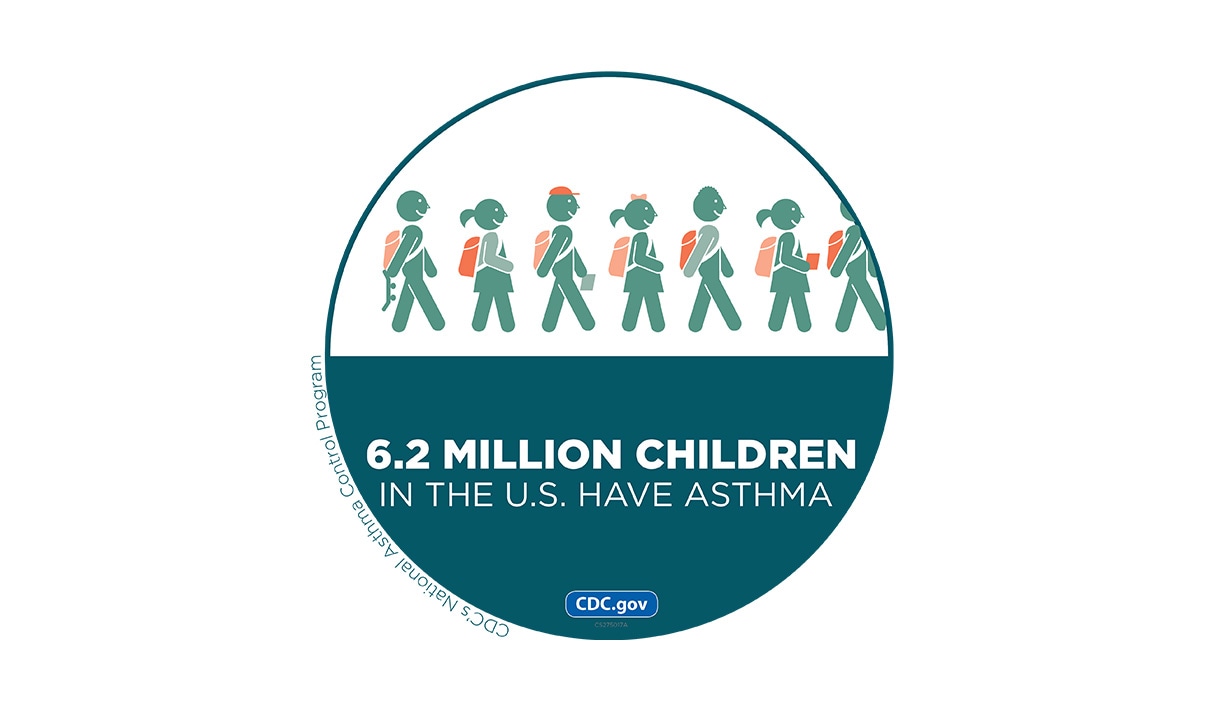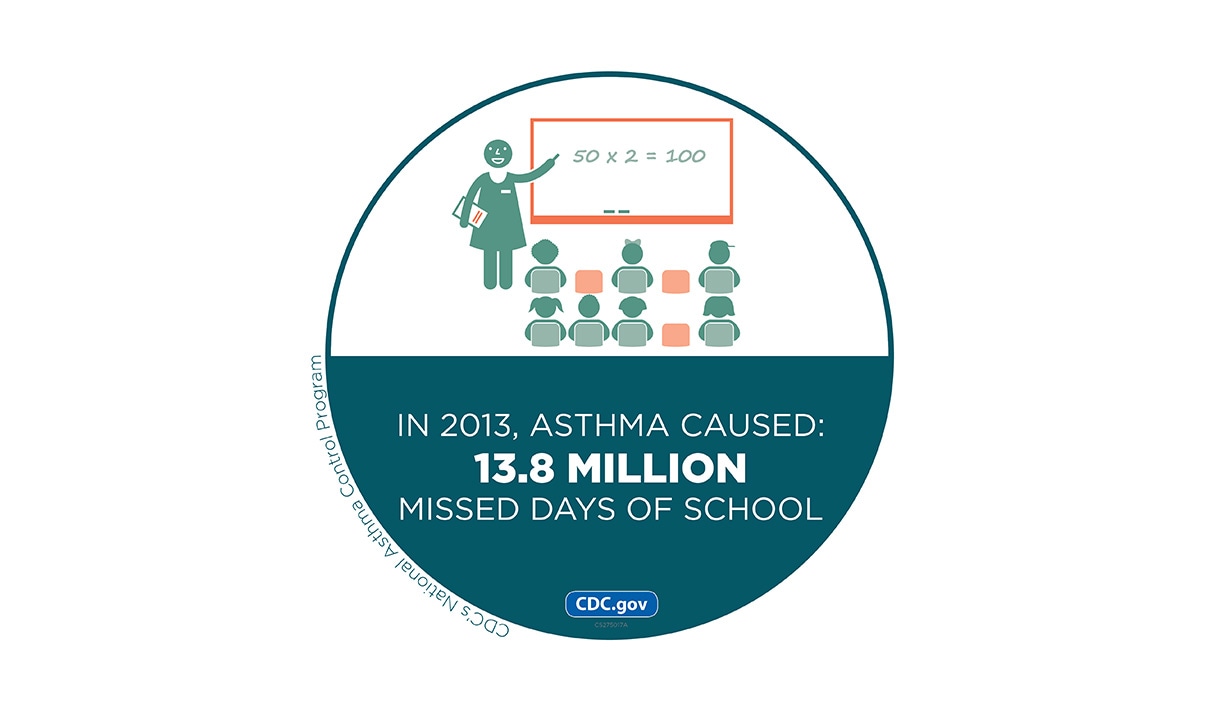Be Alert About Asthma
Know what to do to breathe easy.
Asthma is a disease that affects your lungs. An asthma attack happens in your body’s airways. During an asthma attack, the sides of the airways in your lungs swell and the airways shrink. Less air gets in and out of your lungs, and mucous clogs up the airways even more. An asthma attack may include coughing, chest tightness, wheezing, and trouble breathing.
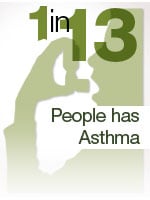
Asthma affects 24 million people living in the United States, including more than 6 million children. It causes 3 in 5 people to limit their physical activity or miss days at school and work. Asthma is the leading cause of missed school days related to chronic illness. It causes more than 10 million missed school days a year. Asthma is also expensive, costing the nation $56 billion each year.
NCEH/ATSDR Office of Communication
(770) 488-0700
envhealthmedia@cdc.gov
- Follow Your Doctor’s Advice
- With your healthcare provider’s help, make your own asthma action plan. Decide who should have a copy of your plan and where they should keep it.
- Use Inhalers and Take Your Medicine
- Asthma medicines come in two types: quick-relief and long-term control. Quick-relief medicines control the symptoms of an asthma attack. If you need to use your quick-relief medicines more and more, visit your doctor to see if you need a different medicine. Long-term control medicines taken daily help you have fewer and milder attacks, but they don’t help you while you are having an asthma attack.
- Avoid Triggers
- Your triggers can be very different from those of someone else with asthma. Know yours and learn how to avoid them. Watch out for an attack when you can’t avoid your triggers. Some of the most common ones are tobacco smoke, dust mites, outdoor air pollution, cockroach allergen, pets, mold, and smoke from burning wood or grass.
Related Links
You Can Control Your Asthma feature
COVID-19 and People with Asthma
Asthma in children Vital Signs
Asthma Care During an Emergency
Asthma Care Before, During, and After a Hurricane or Other Tropical Storm
EPA’s Asthma websiteexternal icon
NIH’s National Heart, Lung, and Blood Institute Asthma websiteexternal icon
NIH’s National Institute of Environmental Health Sciences Asthma websiteexternal icon
Learn how to control your #asthma: https://www.cdc.gov/asthma/faqs.htm #kNOwAsthma
1 in 13 people live with #asthma in the U.S. Learn more: https://www.cdc.gov/asthma/default.htm #kNOwAsthma
24 million Americans have asthma. Learn more: https://www.cdc.gov/asthma/default.htm #kNOwAsthma
#Asthma is expensive. It costs the nation $56 billion per year. Learn more:
https://www.cdc.gov/asthma/nacp.htm #kNOwAsthma
#Asthma causes more than 10 million missed school days each year. https://www.cdc.gov/asthma/default.htm #kNOwAsthma
#Asthma is the leading cause of missed school days related to chronic illness.
https://www.cdc.gov/asthma/default.htm #kNOwAsthma
Have #asthma? Plan outdoor activities for when air pollution levels will be low.
https://www.cdc.gov/asthma/triggers.html #kNOwAsthma
People who have #asthma are at higher risk from wildfire smoke. Be ready!
https://www.cdc.gov/disasters/wildfires/index.html #kNOwAsthma
Have #asthma? Work with your doctor or other medical professional to create an asthma action plan.
https://www.cdc.gov/asthma/actionplan.html #kNOwAsthma
Control your #asthma. Know the warning signs and avoid things that trigger an attack.
https://www.cdc.gov/asthma/faqs.htm #kNOwAsthma

